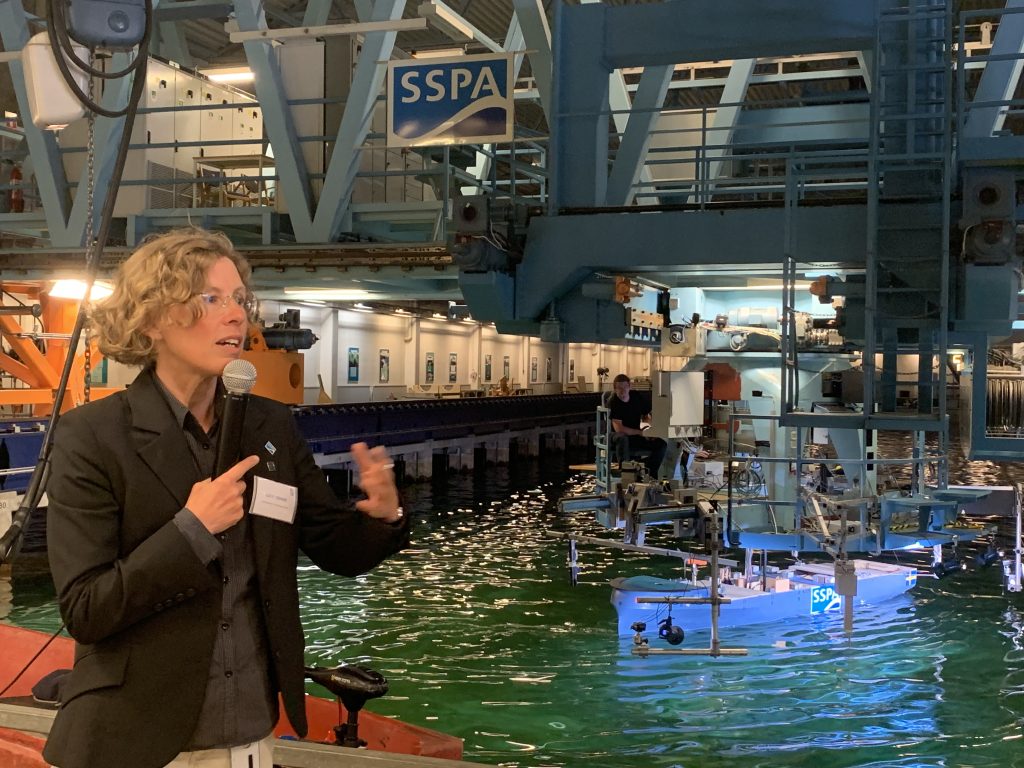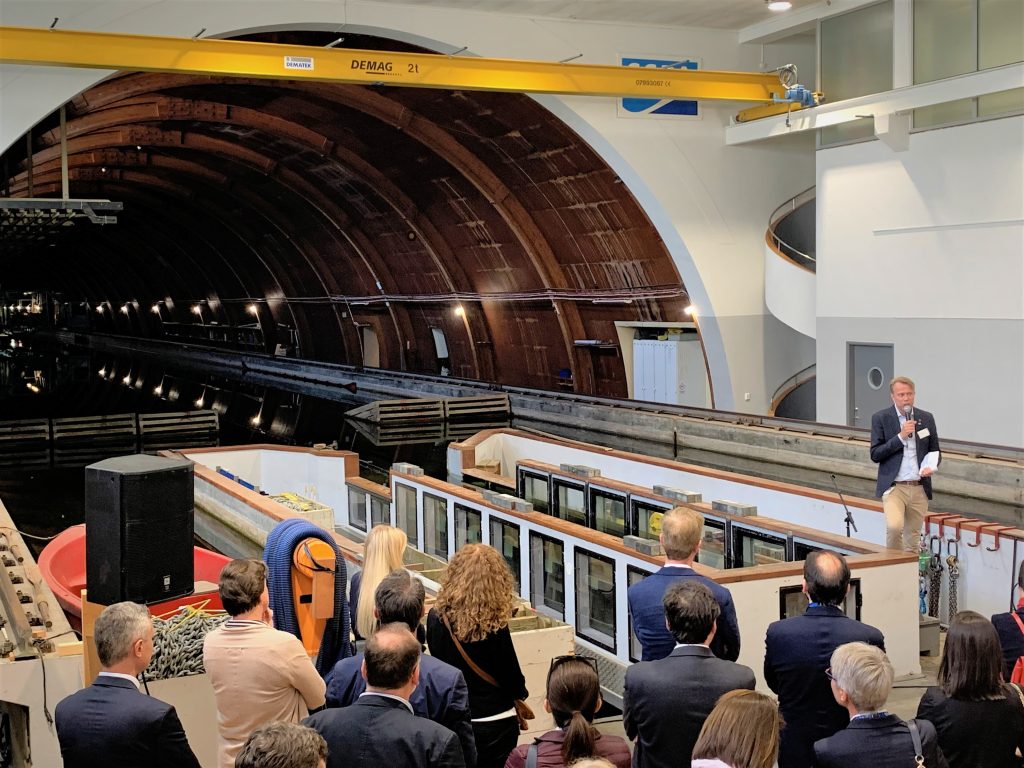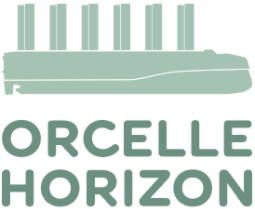The test facilities in Gothenburg, SSPA Maritime Center, have helped the maritime industry to improve ship designs and reduce fuel consumption of ships since 1940. Nowadays, alternatives to fossil fuels, such as fuel cells, batteries, or renewable fuels, are also being investigated. Recently, a new (old) option has emerged on the horizon: wind.
– We assist shipyards and ship owners worldwide to build and operate fuel efficient ships, says Sofia Werner, Lead Researcher Wind-Powered Ships at RISE. Wind propulsion is just one out of many solutions, but during the last years we have seen an overwhelming interest from the shipping industry to explore this possibility.

With the EU funding of EUR 9 million, Orcelle Horizon is one of the facilities’ most ambitious wind propulsion projects. This allows the project consortium to look further into aspects like logistic challenges, crew aspects, and safety. The laboratory test that the visitors from the EU Commission were invited to observe is part of the research activities related to safe maneuvering of wind-powered ships.
– The EU has played an important role in the introduction of wind propulsion for cargo ships, says Frederik Gerhardt, Lead Naval Architect, Aerodynamics and Wind-Powered Ships at RISE. Both by supporting European research related to wind-powered ships for many years, and by increasing the regulatory pressure on fossil fuel in marine transport.

Europe now has a viable industry of manufacturers and consultants supplying the shipping industry with wind propulsion technology. Several world-leading companies are based in Sweden. RISE provides independent advice and support, in co-operation with researchers at the Swedish universities Chalmers University of Technology and the Royal Institute of Technology.
The visit on may 25th was a joint event between RISE and Chalmers University of Technology.
